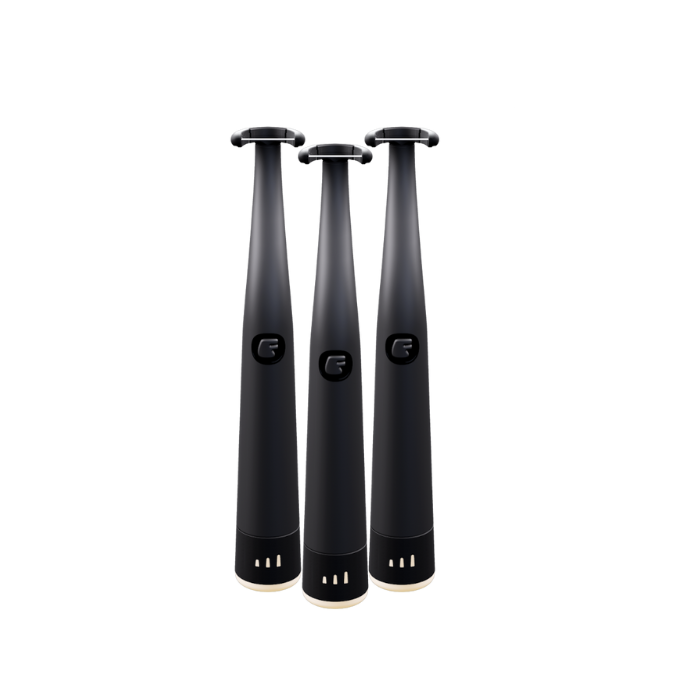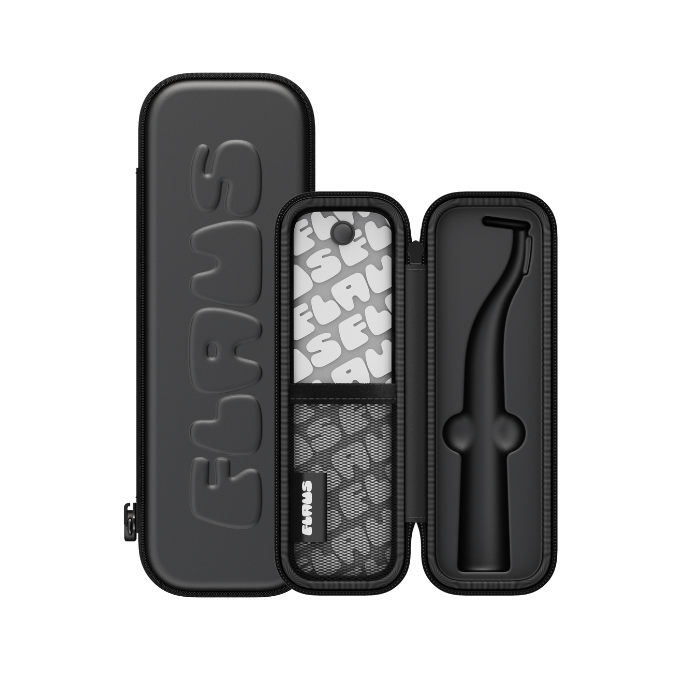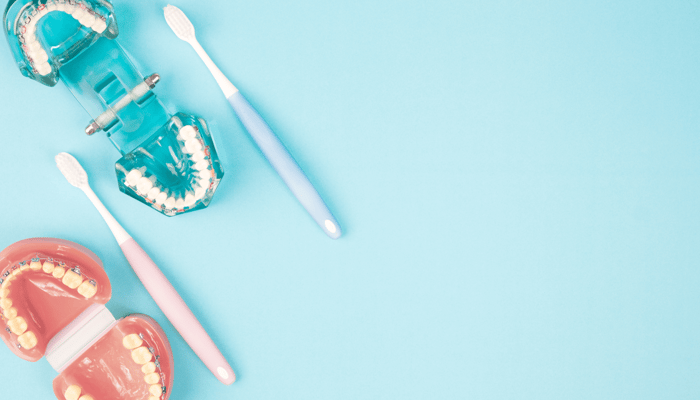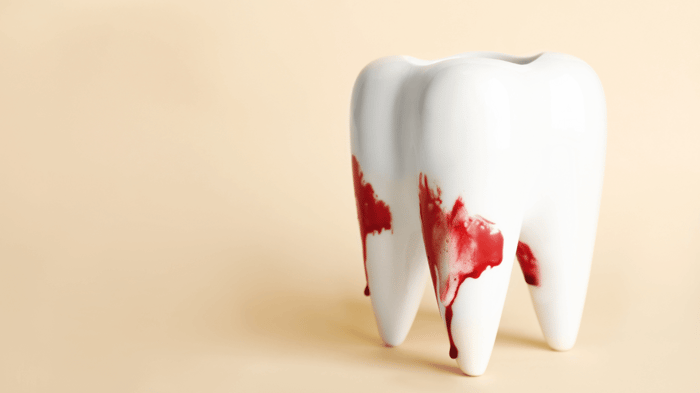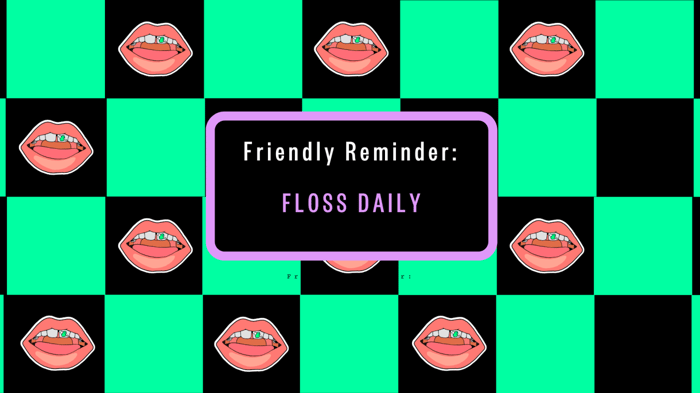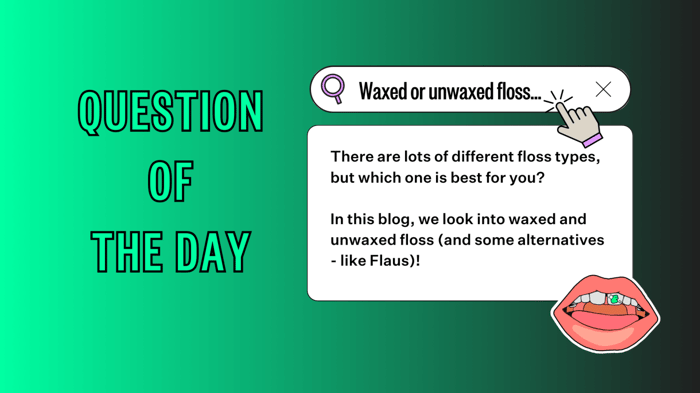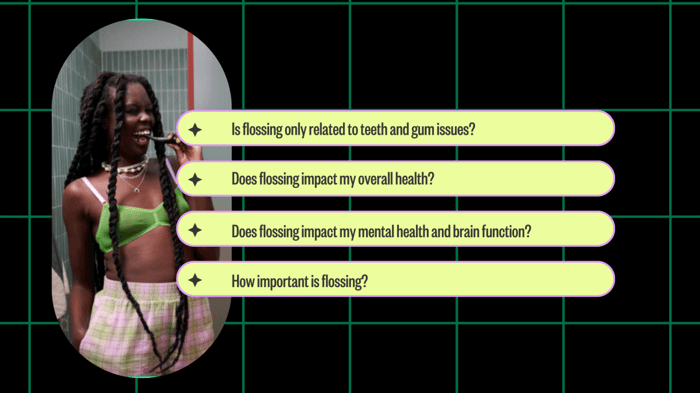Ever heard the expression "an apple a day keeps the doctor away"?
We might be biased, but we're pretty sure that in the oral world, it goes, "a floss a day keeps the dentist away!" We love our dentists, but we know dental visits can be costly, so thought we'd dive into the topic of Gum Pockets for today's blog!
In this blog post, we will delve into what gum pockets are, why they need to be shrunk, how to measure them, and some natural ways to help shrink them at home. We will also discuss the difference between gum and periodontal pockets and when seeking professional dental care is essential.
What Exactly Are Gum Pockets?
Have you ever been to the dentist for a cleaning, and your hygienist is calling out numbers? She's referring to the size of your gum pockets.
Gum pockets, sometimes known as periodontal pockets, are spaces that form between the gums and teeth. In an A+, superstar, love-the-dentist, and never-eats-sugar-mouth, the gums fit snugly around the teeth, providing a protective seal.
However, when gum disease occurs, the gums may slightly pull away from the teeth, creating tiny pockets. These pockets are a space where bacteria loves to hang out and, without proper care, could lead to gum inflammation and even tooth loss!
When to Shrink Gum Pockets and Why?
Gum pockets aren't ideal, but they are common and happen to the best of us - don't worry! We always recommend calling your fave dentist to help find the best treatment plan for you and your gums moving forward!
Shrinking those pesky gum pockets is important for preventing the progression of gum disease and maintaining good oral health. Addressing gum pockets as early as possible is essential to prevent further damage. If left untreated, your gum pockets can get deeper (we know - deep pockets aren't usually a bad thing … but that's not true for our gums)!
Deep gum pockets can harbor harmful bacteria, potentially leading to severe issues like bone loss, loose teeth, and even tooth loss. Shrinking gum pockets helps to eliminate bacteria, reduce inflammation, promote gum reattachment, and prevent further progression of gum disease.
How to Measure Your Gum Pockets?
Measuring gum pockets is essential in understanding the severity of one's gum disease and monitoring progress. A dental professional typically uses a periodontal probe to measure the depth of gum pockets. The probe is gently inserted into the space between the gum and tooth, and the measurements are recorded. Generally, healthy pockets range from 1 to 3 millimeters in depth. Measurements exceeding 4 millimeters indicate the presence of gum disease and may require treatment.
How to Shrink Gum Pockets Naturally at Home: A Few Tips
While it's important to consult a dentist for a proper diagnosis and treatment plan if you have gum pockets, there are some actions you can try at home to help shrink gum pockets. These methods can support your plan with your dentsit and help your overall oral health, too - so you can keep that smile sparkling and your mouth happy for years to come!
Regular and thorough brushing: Brush your teeth twice daily, for at least two minutes, using a soft-bristled toothbrush and fluoride toothpaste. Remember to clean along the gumline on the front and back of the teeth!
Floss daily: Did you think that we'd forget to mention flossing?! Brushing only cleans 60% of your teeth - how are the other 40% cleaned? You guessed it, our favorite oral product - floss! Flossing helps remove plaque and debris between the teeth and gums and is an essential part of your oral care routine. Flaus, an electric flosser, can help stimulate the gums and remove plaque up to 5x faster than traditional flossing!
Saltwater rinses: Gargle gargle! Rinse your mouth with warm saltwater for 30 seconds after brushing and flossing. This can help reduce bacteria and inflammation.
Herbal remedies: Certain herbs like chamomile, sage, and tea tree oil have antimicrobial properties. Rinse your mouth with a herbal mouthwash to help keep your gum pockets free of bacteria and help to minimize risk.
Difference between Gum Pockets and Periodontal Pockets
Gum pockets and periodontal pockets are often used interchangeably, but there is a slight distinction between the two. Gum pockets generally refer to the initial spaces that develop between the teeth and gums, typically caused by gum disease.
Periodontal pockets, on the other hand, indicate more advanced stages of gum disease, where the supporting structures of the teeth, including the bone, are affected. In essence, periodontal pockets are deeper and more severe than gum pockets, requiring specialized periodontal treatment to effectively manage and reverse the condition.
When to See a Dentist
While natural remedies can help you along the path to successfully reduce gum pockets and provide temporary relief, it's essential to consult a dental professional for a thorough examination and professional treatment. You should seek medical treatment quickly for any of the below:
- Your gum pockets are deeper than 4 millimeters.
- Your gum pockets are accompanied by symptoms such as bleeding, swelling, or pain.
- Your gum pockets are getting worse or not improving with home care.
- You have a family history of gum disease.
- You are concerned about your oral health.
A dentist can diagnose accurately, prescribe appropriate treatment, and guide you on the best strategies to shrink gum pockets effectively.
Conclusion
Shrinking gum pockets is crucial for maintaining healthy gums and preventing the progression of gum disease. While natural remedies can support your efforts, seeking professional dental care for a comprehensive diagnosis and treatment plan is essential.
Remember, the key to successful gum pocket treatment is early detection, consistent care, and collaboration with your dentist to achieve the best possible outcomes.
Regular dental check-ups, diligent oral hygiene practices, and early intervention can help shrink gum pockets, promote gum reattachment, and improve oral health. Brushing and Flossing your teeth two times a day are important to maintaining self-care.
Flossing is vital to oral hygiene and keeping your gums healthy and happy.
Our innovative electric flosser, Flaus, is the perfect gum disease-fighting companion. The 10,000 sonic vibrations per minute help quickly remove plaque and debris. Flaus is quick, easy and makes flossing as easy as brushing your teeth. Let Flaus help you keep gum disease at bay and big dental bills away!








